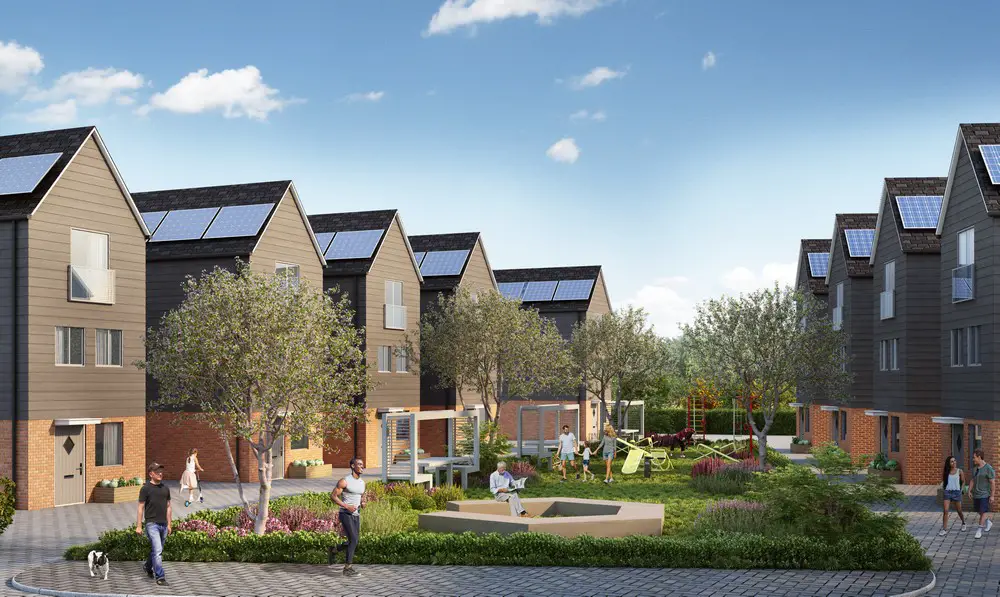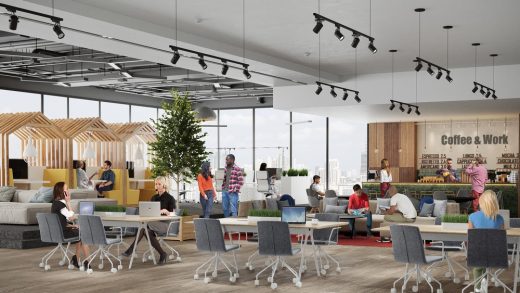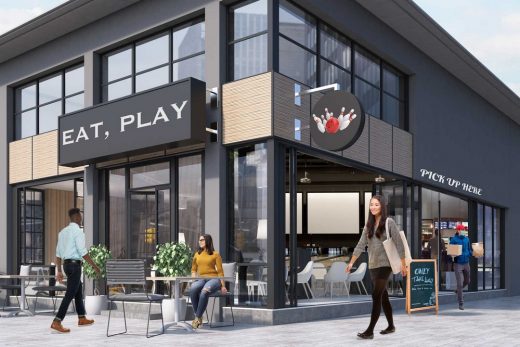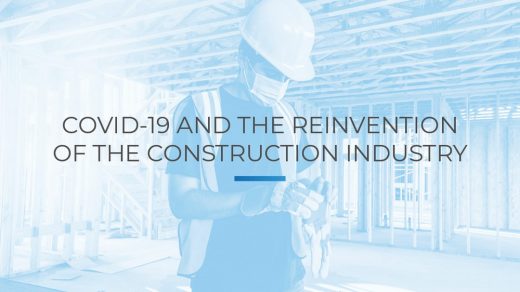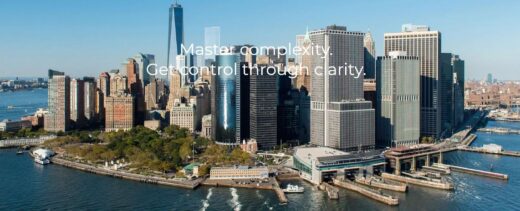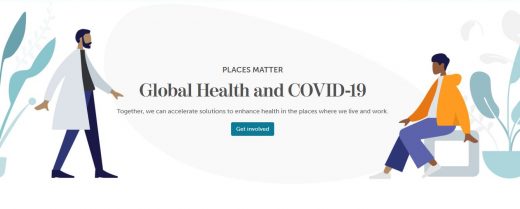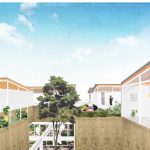COVID-19 Construction Report, Coronavirus real estate impact advice, Post-pandemic home esign guide
Residential property design in a post-Covid world
3 Nov 2020
Placemaking ‘settlements’ with eco-credentials:
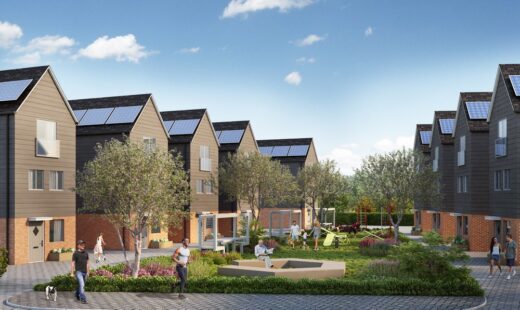
image : Withers
How property design will be different in a post-Covid world
Covid-19 is accelerating rapid change in what we want from our homes and how housing developments are designed, a new report from international law firm Withers explains.
COVID-19 Residential Property Design Report
The report, which features insight from fifteen world-leading business and property experts, discusses the impact of Covid-19 on how we use our homes as well as where we want to live.
Key considerations that the experts anticipate are driving a rapid shift in where and how new homes are developed in the post-Covid world include: an increased demand for a more flexible living space; a greater focus on a home’s locality and nearby amenities; a heightened aspiration for community; and a greater emphasis on more sustainable and environmentally-friendly construction methods.
Homes will no longer serve a purely domestic purpose…
According to the experts, people will expect their homes to deliver much more because they will no longer serve a purely domestic purpose – they will become places that must fulfil home, work and social needs.
‘The home won’t just be a trading commodity you return to, play video games, have sex and go to sleep. People will be more interested in their living space.’
Robert Adam, Founder, Robert Adam Architecture Consultancy.
Spending more time in the home will also lead to more in-home entertaining. In the experts’ view, this will elevate the importance of these aspects of the home and this will be felt in design.
Location, location, location will mean a move from city centres…
Property agents have reported an increase in the number of people moving from city centres in the wake of Covid-19, to locations that are further afield than people had traditionally considered. These locations are not rural but offer a feeling of being outside of the central metropolises while still being well served by the kind of amenities and resources they are used to.
There have also been reports of increased demand for homes in well served villages, market towns, and coastal areas within an hour and a half journey to the cities; as home working offers more freedom and people look for more living space and greener environments.
Homeowners will expect more amenities on their doorstep…
As more time is spent at home, for one purpose or another, experts believe that the immediate locality will have to satisfy needs that were previously met elsewhere. Wherever people live, they will expect more amenities, variety, and infrastructure to be provided locally.
Withers’ experts believe that people have embraced local services and retailers during the pandemic and have questioned their use of larger national providers in a way that they hadn’t done previously. In some instances, confidence in national retailers was undermined by shortages and people discovered that there was more choice on their doorstep than perhaps they had appreciated.
‘As people have refocussed on getting provisions nearby, local businesses have seen a real boost… there’s been a nice re-discovery of traditional local shops’
Richard Pickering, Chief Strategy Officer, Cushman & Wakefield.
Suburbia will need to reinvent itself…
People’s expectations and requirements might have moved on, but the experts believe that suburbia has been slow to adapt. A theme from the report is that the suburbs feel tired and lacklustre and in their current configuration they are ill equipped to accommodate the resurgence in demand for community, brought about by an increased amount of time spent at home.
Withers’ experts believe that suburbs will need to become destinations that people want to spend time in, rather than simply travel to or from. Ultimately this is about creating a sense of community where perhaps it had been lacking, for which you need the businesses, shops, services, and amenities that make community possible.
‘The suburbs are knackered. They aren’t community hubs because they were built to be driven out of, so there’s nothing there’
Robbie Kerr, Director, ADAM Architecture.
‘Early 20th century suburbia that have very little to offer, homogenous outdated houses, there’s no ‘there’, there… the challenge is to create new settlements around them… it’s difficult to urbanise a suburb, but it needs doing’
Professor Yolande Barnes, Chair at Bartlett Real Estate Institute, University College London.
Vertical villages – buildings that offer housing, amenities, working spaces and ‘green’ space:
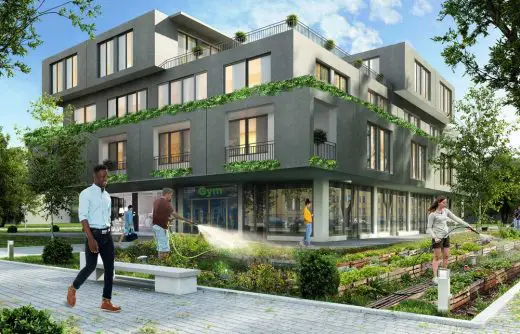
image : Withers
New housing developments could look and feel a little different…
There is a prevailing sense that new settlements will be characterised by mixed use, mixed tenure, and mixed community features. The experts believe that housing developers will have to think harder about how to achieve this and these design considerations are likely to rank higher up the agenda than they have done historically.
‘Placemaking is a buzzword that has come to define a lot of the debate around the future of real estate after the pandemic and is perhaps best characterised as the creation of a space with a unique community which enhances quality of life. The norm is a nod to placemaking with a duck pond in the middle of a housing estate, but new settlements need long-term management and curation’
Professor Yolande Barnes, Chair at Bartlett Real Estate Institute, University College London.
A home’s eco-credentials will be considered more…
The experts believe that new home buyers will drive demand for sustainability in new homes and settlements, and that developers may have to deliver on sustainability and environmental promises as never before.
‘Housebuilders will want to develop and build a reputation based on both their eco credentials and also their placemaking credentials’
Lucian Cook, Head of UK Residential Research, Savills.
Jeremy Wakeham, CEO of the Withers Business Division and a commercial real estate partner added:
“The world over, the buildings we work, live and socialise in are wrestling with the challenge of catering for our new demands and this presents extraordinary opportunities. This report examines this historic turning point in attitudes and practices to how we use property across all areas of our lives.
“Homes are taking on a new level of importance. Our respondents anticipate that people will expect their homes to deliver much more because they will no longer serve a purely domestic purpose. As more time is spent at home, for one purpose or another, the immediate locality will have to satisfy needs that were previously met elsewhere. Wherever people live, they will expect amenities, variety and infrastructure to be provided locally. Getting behind the right targets at the right time will be crucial for investors and developers.”
The future of real estate report: work, home and social, can be found at: https://reports.withersworldwide.com/the-future-of-real-estate/cover/.
Background
Report Methodology
Murmur Research was commissioned by Withers to investigate the impact of Covid-19 on the future of home, work and socialising. They conducted interviews with 15 experts who are well known figures within property, architecture, land development, hospitality, and academia.
The Experts
- Robert Adam – Robert Adam Architectural Consultancy
- Yolande Barnes – University College London
- Lucian Cook – Savills
- Nectar Efkarpidis – Molonglo
- Jonathan Harbottle – Land & Partners
- Philip Harvey – Property Vision
- Robbie Kerr – ADAM Architecture
- Katrina Kostic Samen – KKS Savills
- Marcus Loo -Savills
- Islam Mahdy – Credence Hospitality Developments
- David McDowall – BrewDog
- Chris Miller – White Rabbit Fund
- Mat Oakley – Savills
- Richard Pickering – Cushman & Wakefield
- Mark Williams – Queen Mary School of Business
Withers
Withers is an international law firm with a broad-ranging client base including multinational corporations, governments, international institutions and individuals and their businesses.
With over 170 partners and more than 450 other lawyers, we have unparalleled expertise in commercial, tax, trusts, estate planning, financial services, litigation and international arbitration, public international law, real estate, charities, philanthropy, employment, family law and other legal issues facing individuals and their families. The firm has advised 70% of the top 100 UK Sunday Times Rich List, 25% of the Forbes 400 List, 35% of the Hong Kong Forbes Rich List, and 35% of Forbes Asia’s Richest Families list.
Withers has 17 offices worldwide in London, New York, New Haven, Greenwich (Connecticut), San Francisco, San Diego, Los Angeles, Rancho Santa Fe, Hong Kong, Singapore, Sydney, Tokyo, the British Virgin Islands, Geneva, Milan, Padua and Cambridge.
Residential property design in post-Covid world images / information received 031120
Coronavirus Impact
Previously on e-architect:
COVID-19 construction industry reinvention
COVID-19 construction industry reinvention
Building Resilience Construction Report
Building Resilience Construction Report
APM Covid-19 outbreak online resources
IWBI Task Force on COVID-19 News
Buildings Can Reduce Health Burden of COVID-19
Database for Quarantined Architects
Coronavirus Impact on Property Market Article
WHO page: coronavirus
UK government website page: Coronavirus (COVID-19): UK government response.
Comments / photos for the Residential property design in post-Covid world page welcome.

